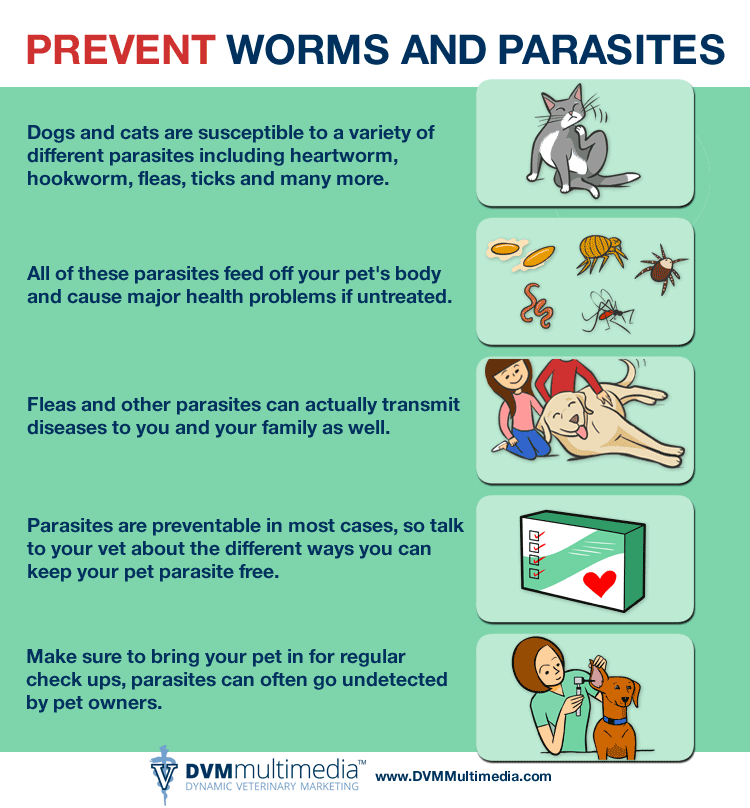Explore the common pet parasites and the risks they pose. We’ll explain the difference between external, internal, and protozoan parasites. How they affect pet health and the best pet parasite prevention.
Understanding Pet Parasites

Parasites are a constant threat to pets, causing discomfort if left untreated. Beyond harming pets, many parasites can spread to humans, making prevention essential. These invaders come in many forms and often are warning signs to go to the vet.
What Are Pet Parasites?
Pet parasites are organisms that survive by feeding off their host. This causes health problems in the process. These parasites can be external, internal, or protozoan. Each type of parasite presents unique risks to your pet’s health.
Fleas, ticks, and mites are external parasites that live on the skin. They survive by feeding on blood, which results in itching, hair loss, and infections. Fleas have the potential to set off intense allergic responses. Ticks attach themselves to the skin. Which can also be carriers of Lyme disease or Rocky Mountain spotted fever. Mites dig into the skin bringing about mange, while lice create irritation and cause hair to fall out.
Internal parasites invade the pet’s organs and bloodstream. Heartworms, live in the heart and lungs, leading to heart failure if untreated. Roundworms, hookworms, and tapeworms settle in the intestines. They absorb nutrients causing malnutrition, diarrhea, and weakness. Hookworms can also penetrate the skin.
Protozoan parasites like Giardia and Coccidia infect the digestive system. This leads to chronic diarrhea and dehydration. These microscopic organisms are often picked up from contaminated water or feces.
Without treatment, parasites multiply rapidly, causing progressive illness. Some can spread between pets and even to humans.

Why Pet Parasite Prevention Is Essential
Parasites pose serious risks to pets. This leads to disease, discomfort, and even death in severe cases.
A lot of pet parasites can spread to humans. Your dogs and cats can pass roundworms and hookworms to people. This has an impact on the digestive system, causes skin problems, and in some cases even affects eyesight. Ticks carry Lyme disease, which is a threat to both pets and their owners. Fleas take over homes and bite both humans and animals.
Once parasites establish themselves, they reproduce rapidly. Fleas lay up to 50 eggs per day. Creating an infestation that spreads through carpets, furniture, and pet bedding. A single heartworm can grow up to a foot long, blocking blood flow and straining the heart. Tapeworms and roundworms produce thousands of microscopic eggs.
Treating parasites is far more expensive and difficult than preventing them.
Heartworm treatment requires months of medication and strict rest. Fleas in some cases require a full home extermination.
Regular use of preventatives saves money, protects health, and ensures a parasite free home.
Types of Pet Parasites and Prevention

Flea Prevention
Fleas are blood feeding parasites that cause more than just itching. Their bites lead to skin infections, allergic reactions, and even anemia. Some pets develop flea allergy dermatitis (FAD). This is a reaction to flea saliva that results in intense scratching, hair loss, and open sores.
Preventing fleas requires a multi-step approach that includes both pet and environment control:
| Prevention Method | Details |
|---|---|
| Monthly Flea Preventatives | Oral medications, topical treatments, flea collars |
| Regular Cleaning | Wash pet bedding, blankets, and soft furniture frequently. Vacuum carpets and furniture, disposing of the bag immediately. |
| Home and Yard Treatment | Use flea sprays or foggers for the home. Apply pet safe insecticides or nematodes in yards to kill flea larvae. |
Flea preventatives should be used year round as fleas can survive indoors even in winter. Treating all pets in the household is essential since fleas can jump from one host to another. If there is an outbreak, immediate treatment is necessary. Prevention is the only way to keep fleas from spreading, biting, and causing disease.
Tick Prevention
Ticks attach to the skin of pets and feed on their blood, often going unnoticed until fully engorged. They carry serious diseases, including Lyme disease, Rocky Mountain spotted fever, and Ehrlichiosis. A tick-borne illness causes fever, joint pain, lethargy, and organ damage. Unlike fleas, ticks do not reproduce indoors but can still infest your yards. They can also travel on clothing or other pets.
Effective tick prevention combines medications, regular checks, and environmental control:
| Prevention Method | Details |
|---|---|
| Tick-Prevention Medications | Chewable tablets, topical treatments, tick collars |
| Daily Tick Checks | Inspect the pet’s ears, belly, and between toes after outdoor activities. Remove ticks using tweezers or a tick-removal tool. |
| Yard Maintenance | Cut your grass short and create a gravel barrier between your yard and wooden areas. |
Ticks thrive in wooded and grassy environments. Year round tick prevention is essential, especially in tick heavy regions. If a tick is found, it should be removed promptly. Use tweezers and avoid twisting to prevent leaving mouthparts embedded. Proper prevention ensures pets stay tick free and protected from threatening diseases.
Heartworm Prevention
Heartworms are parasitic worms that infect the heart, lungs, and blood vessels. This can cause congestive heart failure and lung disease. Heartworm larvae are transmitted by mosquitoes. These mosquitoes bite an infected animal and then transmit it to another animal. The larvae take time to develop. They will form into worms that block arteries and cut off oxygen to essential organs. Infected pets exhibit coughing, fatigue, weight loss, and shortness of breath. These symptoms might not become noticeable until the damage is severe.
| Prevention Method | Details |
|---|---|
| Monthly Heartworm Preventatives | Oral, topical |
| Annual Vet Screenings | Detects early-stage infections before damage occurs |
| Mosquito Control | Keep pets indoors at dawn/dusk, use pet-safe repellents, and remove standing water |
Heartworm preventatives kill immature larvae before they develop into adults. Even pets that stay indoors need protection since mosquitoes can enter homes. Annual blood tests are necessary because preventatives don’t work on mature worms. Skipping even one dose puts pets at risk, as infected insects are active year-round in many areas.
Prevention is the only effective defense, as treatment is costly, risky, and painful.
Intestinal Worm Prevention
Intestinal worms infest the digestive tract depriving pets of nutrients. Causing diarrhea, weight loss, bloating, and vomiting. Some, like roundworms and hookworms, can also infect humans. Leading to skin irritations or more severe health issues. Tapeworms attach to the intestinal wall and grow in segments. While whipworms burrow into the lining of the colon, causing chronic inflammation. Pets contract these parasites by ingesting contaminated soil, feces, raw meat, or fleas.
Prevention requires regular deworming and strict hygiene measures:
| Prevention Method | Details |
|---|---|
| Deworming Medications | Broad-spectrum dewormers eliminate multiple worm types |
| Proper Waste Disposal | Remove pet feces from yards, litter boxes, and public spaces to reduce exposure |
| Avoid Contaminated Areas | Keep pets from drinking from puddles, eating dirt, or hunting rodents |
Deworming should be done every 3-6 months or more frequently for pets at higher risk. Puppies and kittens require more frequent treatments due to higher susceptibility. Regular fecal exams detect infections before they spread. Preventative care minimizes risks for pets and reduces transmission to humans.
Veterinary Best Practices for Parasite Control
Regular veterinary care is the cornerstone of effective parasite prevention. Routine checkups, exams, and blood tests help detect parasites before they can harm. Even pets that stay indoors are at risk, such as fleas, ticks, and heartworms.
Routine Vet Visits and Parasite Testing
Routine vet checkups are essential for early detection and prevention of parasites. Annual veterinary visits allow for thorough examinations, ensuring pets remain free of parasites. Veterinarians check for signs of external parasites. They will conduct diagnostic tests to catch internal infections before symptoms appear.
Fecal exams are a key component of parasite screening. Many intestinal worms go undetected because they live inside the digestive tract. A stool sample test identifies microscopic worm eggs and protozoa. Puppies and kittens require more frequent testing due to higher exposure risks.
Blood tests detect heartworm infections before they cause irreversible damage. Since heartworms can take months to mature, pets may not show symptoms until it’s too late. Annual heartworm screenings are necessary even if a pet is on preventative medication.
Routine vet visits also provide an opportunity to update parasite preventatives. The veterinarian can adjust treatments based on a pet’s age, weight, and lifestyle.

Common Myths About Parasite Treatment and Prevention
Indoor pets are not immune to parasites. Fleas and ticks can enter homes on clothing, shoes, or other pets. Heartworm transmitting mosquitoes do not discriminate between indoor and outdoor animals. Many intestinal parasites spread through contaminated food or litter. Making regular preventative treatments necessary for all pets.
Garlic does not prevent fleas and ticks. While some believe it’s a natural repellent, there is very little evidence that this prevents parasites. In large amounts, garlic is toxic to pets, leading to anemia and digestive issues. Safe, vet approved flea and tick preventatives remain the only reliable method.
Heartworms do not only affect your dog’s health. While dogs are the primary hosts, cats can also contract heartworm disease. In cats, heartworm infections are harder to diagnose and treat. Often leading to severe respiratory distress or sudden death. Since there is no approved heartworm treatment for cats, prevention is the only option.
Some circumstances may require an individual approach to your pet’s parasite control. Feel free to contact us for a recommendation that best serves your pet’s situation. Here is a link from the CDC that has additional information: https://wonder.cdc.gov.
Frequently Asked Questions
What is the safest parasite prevention for dogs?
For dogs, the safest parasite prevention is a veterinarian approved product regimen. Prescription medications, monthly heartworm preventives, and flea and tick treatments provide effective protection. Regular veterinary visits ensure safe dosages and updated prevention.
How can you prevent parasites in animals?
Prevention in animals requires proper sanitation, routine deworming, and environmental control. Consistent use of recommended products reduces parasite risks.
Are parasites common in pets?
Parasites are common in pets, with infestations affecting many species. Even indoor animals face risks.
Can cats get parasites?
Cats can get parasites, including fleas, ticks, and worms. Veterinary guidance is essential for safe, effective prevention. Routine monitoring and immediate treatment are essential for maintaining your pet’s health.
 All About Pets
All About Pets 

